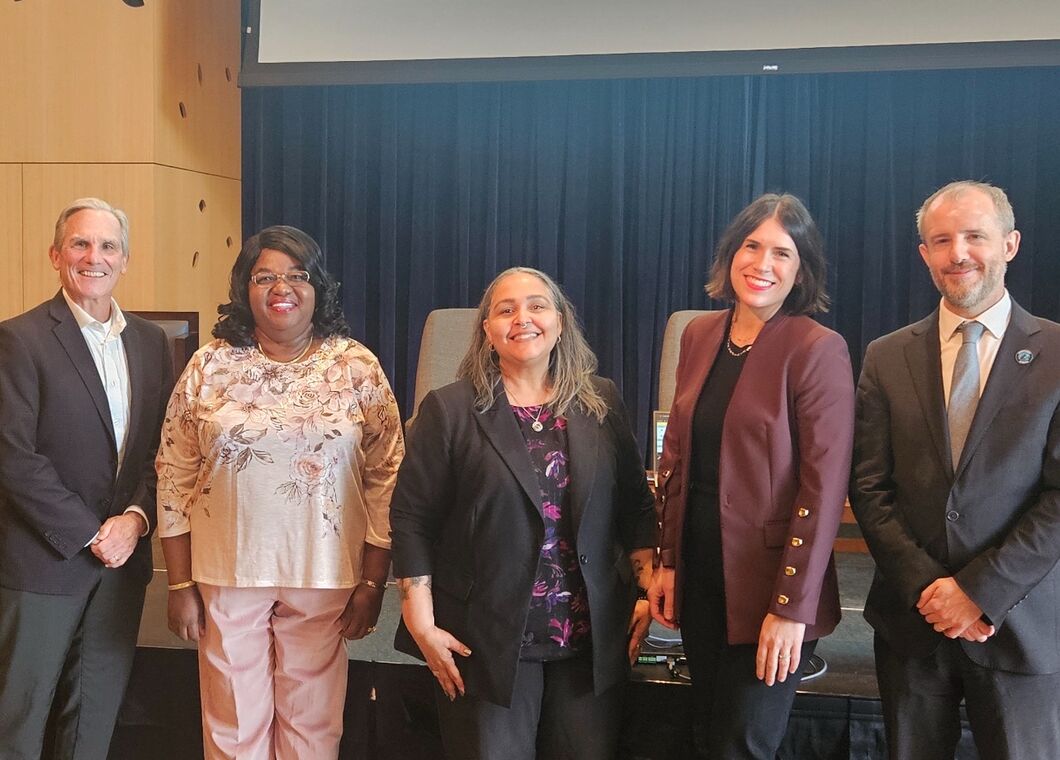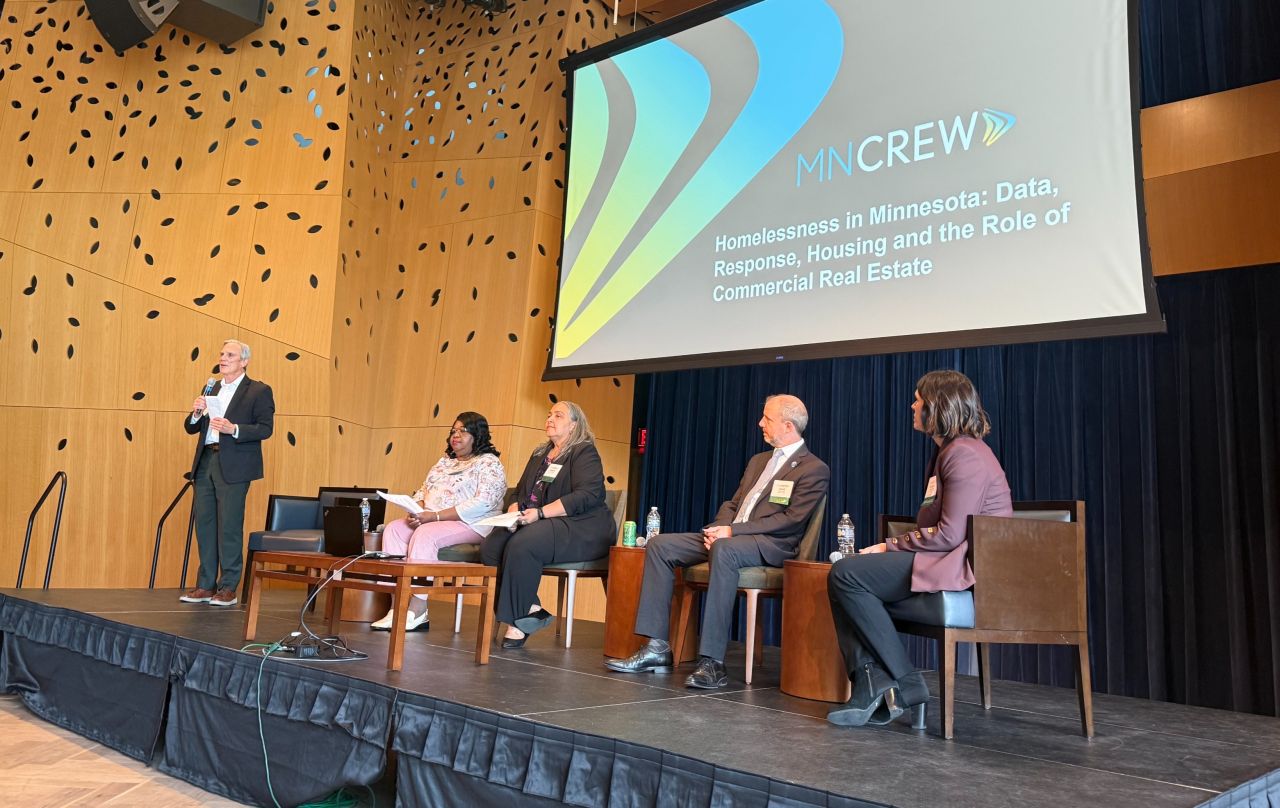
Panel takeaways: It takes all of us to fully address homelessness
I recently had the privilege of representing Project for Pride in Living (PPL) on a panel hosted by the commercial real estate nonprofit MNCREW. The conversation centered around the current state of homelessness in Minnesota. Together, we explored the current realities, many complexities, and systemic challenges faced by people experiencing homelessness. We also discussed the pivotal role that commercial real estate entities can play in advancing solutions.
The panel focused on examining the Minnesota Homeless Study, a triennial effort conducted by the Wilder Foundation that provides comprehensive data on homelessness in Minnesota. The findings shed light on who is experiencing homelessness and why – important information that helps guide and inform our collective approach to effectively responding to this community-wide challenge.
 I’m always grateful for opportunities to engage in cross-sector conversations that foster critical dialogue about homelessness. They are essential if we are serious about collectively developing innovative and lasting strategies to address homelessness.
I’m always grateful for opportunities to engage in cross-sector conversations that foster critical dialogue about homelessness. They are essential if we are serious about collectively developing innovative and lasting strategies to address homelessness.
Here are my key takeaways from this valuable conversation, which included key partners across local nonprofits, commercial real estate firms, and government:
- Misconceptions about who experiences homelessness are harmful. A common misconception is the persistent belief that the issue of homelessness only impacts people who are visibly living on the streets, unemployed, and perhaps suffering from substance use or mental health challenges. While that is part of the story, it is far from the whole picture. The reality is approximately 40% of people who experience homelessness are employed and doing their best to make ends meet – and they’re not always visible. Many people may be living in cars, couch-hopping, or staying in temporary shelters, remaining largely invisible to the broader public. Homelessness is fueled by systemic and economic barriers like practices of racial exclusion, low wages, a lack of job training, rising housing costs, and more.
- At its core, homelessness is a housing issue. It bears repeating that many individuals experiencing homelessness are employed yet still cannot access affordable, stable housing. Even “affordable” housing options can be out of reach for people living paycheck to paycheck, or with past evictions or low credit histories. If we are serious about addressing the homelessness crisis, we must center housing in every conversation. Creating more truly affordable housing while expanding access to supportive and dignified housing options must be our top priority.
- Everyone has a role to play. Solving homelessness requires intentional, coordinated action – and it takes all of us. It is simply not enough to care about the issue. Instead, we must be willing to act thoughtfully, advocate passionately, and remain engaged for the long haul. Solutions must involve a collaborative approach that draw on the lived experiences of people who have experienced homelessness and the expertise of government officials, nonprofit organizations, private partners, and community members.
At PPL, we build the hope, assets, and self-reliance of individuals and families who have lower incomes by providing transformative affordable housing and career readiness services.
We understand that stable, affordable housing is just the start. That’s why we provide wraparound supportive services at many of our properties, leading with holistic, person-centered supports to cultivate long-term success. Our permanent supportive housing, for example, doesn’t just give people a place to live. It also connects them to vital resources on site, including health care, employment support, financial coaching, and community-building opportunities. Our approach ensures that people don’t just find housing – they thrive in it.
Addressing homelessness requires ongoing commitment to equity, compassion, and collaboration. I left the panel feeling hopeful that by working together across industries, we can build a Minnesota where everyone has a place to call home.

